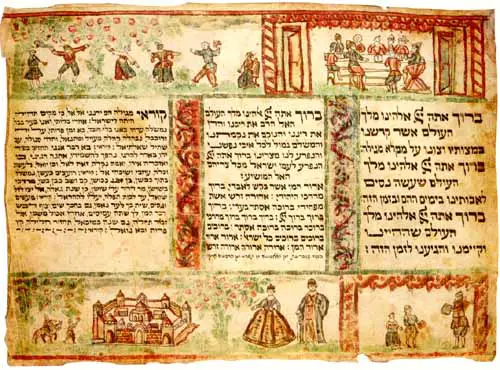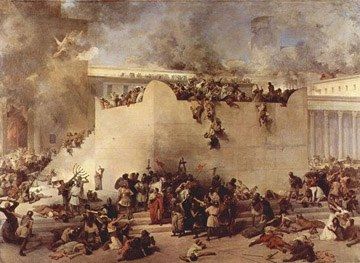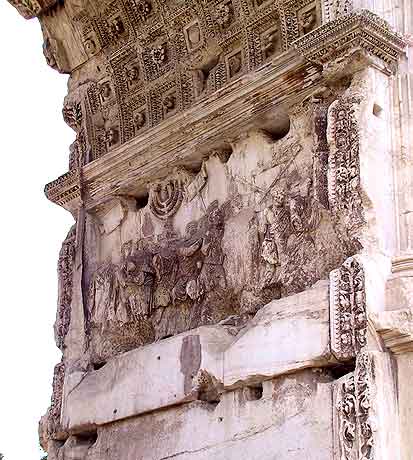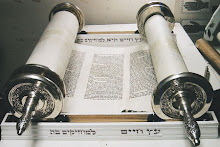O Plano Simples de Deus para a Salvação
Meu amigo! Faço-te a mais importante pergunta desta vida. Tua alegria ou tristeza por tôda a ETERNIDADE depende dela. Eis a pergunta: Estás SALVO? Quer dizer ... ESTÁS CERTO de que irás para o Céu quando morreres? Não te pergunto se és membro de alguma igreja, mas ESTÁS SALVO? Não te pergunto se és pessoa de bem mas ESTÁS SALVO? Ninguém pode gozar das bênçãos de Deus ou ir para o Céu, sem estar salvo. Jesus disse a Nicodemos, em João 3:7 - "Necessário vos é nascer de novo." Deus nos deu na Sua Palavra um ÚNICO plano de Salvação. Esse plano é simples. Podes ser salvo HOJE.
Primeiro, meu amigo, tens de reconhecer que és PECADOR.
Romanos 3:10 - "Não há um justo, nem um sequer."
Romanos 3:22, 23 - "Porque não há diferença: TODOS pecaram e destituidos estão da glória de Deus."
Não há OPORTUNIDADE de seres salvo, se não reconheceres que ÉS PECADOR.
Porque és pecador, estás CONDENADO À MORTE!
Romanos 6:23 - "Porque o salário do pecado é a morte."
Tiago 1:15 - "E o pecado, gera a morte."
Isto significa separação de Deus, no Inferno para sempre. Sim, é terrível, meu amigo, mas é verdade. Mas Deus te amou tanto que Deu seu unigènlto filho, Jesus Cristo, como teu substituto, para levar teus pecados e morrer em teu lugar.
2 Coríntios 5:21 - "AQUELE que não conheceu pecado (Jesus) 0 fez pecado por NOS para que nELE fôssemos feitos justiça de Deus."
1 Pedro 2:24 - "Levando Ele mesmo em SEU corpo os NOSSOS pecados sobre o madeiro, para que, mortos para os pecados, pudéssemos viver para a justiça; e pelas Suas feridas FOSTES SARADOS."
Jesus teve que morrer. Ele teve que derramar o Seu sangue. "Porque a alma da carne está no sangue (Levíticos 17:1 1). "Sem derramamento de sangue não ha remissão" (Hebreus 9:22).
Não podemos, agora, compreender como os nossos pecados foram colocados sobre Cristo, mas Deus, em SUA PALAVRA, diz que foi assim. Assim os TEUS PECADOS, meu amigo, foram carregados POR JESUS, e ELE MORREU EM TEU LUGAR. Isto é verdade. Deus não pode mentir!
0 carcereiro de Filipos perguntou a Paulo e Silas: "Que é necessário que EU FAÇA para me SALVAR?"
Atos 16:31 - "E eles disseram: CRÊ no Senhor Jesus Cristo, e SERÁS SALVO, tu e a tua casa."
Basta crer nELE como 0 que carregou teu pecado, e morreu no teu lugar, foi sepultado e ressuscitou para tua justificação. Clama, agora, por Ele!
Romanos 10:13 - "Porque TODO AQUELE que invocar o nome do Senhor será salvo."
A primeira oração que um PECADOR deve fazer, é a seguinte: "Ó Deus, tem misericórdia DE MIM, pecador" (Lucas 18:13). Agora és um pecador e sentes tristeza por isso. Então, AONDE ESTIVERES, podes elevar o teu coração a Deus em oração. Não é necessário fazer uma longa oração em voz alta, porque Deus está ANSIOSO para te salvar. Basta dizeres: "Ó Deus, sou um pecador arrependido. Tem misericórdia de mim e salva-me pelo amor de Jesus." Aceita-0, então, de acôrdo com a Sua Palavra.
Romanos 10:13 - "Porque TODO AQUELE (isto te inclui) que invocar o nome do Senhor SERÁ SALVO (será salvo, e não talvez seja salvo). SERÁ SALVO!
Crê em Deus e na Sua PALAVRA. Quando tiveres feito o que Ele te pediu, aceita a SALVAÇÃO PELA FÉ, conforme a SUA PALAVRA. CRÊ E SERÁS SALVO. Nenhuma igreja, nenhuma sociedade nem as boas obras ninguém - mas Só e únicamente JESUS CRISTO PODE TE SALVAR.
0 plano simples da salvação é: ÉS PECADOR; porque és pecador, DEVARÁS MORRER ou crer em Cristo que foi TEU SUBSTITUTO e morreu em TEU LUGAR, foi sepultado e ressuscitou. Clama por Ele, reconhecendo que és um pecador e pede-LHE que tenha misericórdia de ti e te salve, pelo AMOR DE JESUS. Crê, então, na Sua Palavra e, PELA FÉ,ACEITA A SALVAÇÃO. Dirás talvez:" Certamente isto não basta para ser salvo."
Sim - nada mais e absolutamente nada. Graças a Deus, muitos têm sido ganhos para Cristo por êsse simples plano. Está nas ESCRITURAS. É 0 PLANO DE DEUS. Crê nÊLE meu amigo, e SEGUE-0. Agora é o tempo. HOJE é o dia.
2 Coríntios 6:2 - "Eis aqui AGORA o tempo aceitável, eis aqui AGORA o dia da salvação."
Provérbios 27:1 - "Não presumas do dia de amanhã, porque não sabes o que produzirá o dia."
Se não achares perfeitamente claro, lê novamente até poderes compreender. Não abandones êste folheto, até que possas entendê-lo totalmente. Tua alma tem mais valor do que tudo no mundo.
Marcos 8:36, 37 - "Pois que aproveitaria ao homem ganhar todo o mundo e perder a sua alma? Ou que daria o homem pelo resgate da sua alma?"
Assegura a tua salvaç&o. Coloca a tua salvação acima de todas as coisas. Se perderes a tua alma, não entrarás no céu e perderás tudo. Deus te ajudará afim de que sejas salvo hoje.
Deus te salvará e, também, TE GUARDARÁ.
1 Corintios 10: 13 - "Não veio sobre vós tentação, senão humana; mas fiel é Deus, que vos não deixará tentar acima do que podeis, antes com a tentação dará também o escape, para que a possais suportar."
Não contia nos teus sentimentos. Estes mudam. Firma-te nas promessas de Deus. Estas nunca mudam.
DEPOIS DE SALVO, há três coisas que deves realizar, para o teu crescimento espiritual:
ORA - e falarás com Deus. LÊ A BíBLIA - e Deus falará contigo. TESTIFICA - e falarás por Deus. Em seguida deves ser batizado e afiliado a uma igreja que creia verdadeiramente na Bíblia.
Mateus 10:32 - "Portanto qualquer que me confessar diante dos homens, eu o confessarei diante de meu Pai, que está nos céus."
Copyright: Robert Ford Porter, 1991
^^^^^^^^^^^^^^^^^^^^^^^^^^^^^^^^^^^^^^^^^^^^^^^^^^^^^^^^^^
God’s Simple Plan of Salvation
My Friend: I am asking you the most important question of life. Your joy or your sorrow for all eternity depends upon your answer. The question is: Are you saved? It is not a question of how good you are, nor if you are a church member, but are you saved? Are you sure you will go to Heaven when you die?
God says in order to go to Heaven, you must be born again. In John 3:7, Jesus said to Nicodemus, “Ye must be born again.”
In the Bible God gives us the plan of how to be born again which means to be saved. His plan is simple! You can be saved today. How?
First, my friend, you must realize you are a sinner. “For all have sinned, and come short of the glory of God” (Romans 3:23).
Because you are a sinner, you are condemned to death. “For the wages [payment] of sin is death” (Romans 6:23). This includes eternal separation from God in Hell.
“ . . . it is appointed unto men once to die, but after this the judgment” (Hebrews 9:27).
But God loved you so much He gave His only begotten Son, Jesus, to bear your sin and die in your place. “ . . . He hath made Him [Jesus, Who knew no sin] to be sin for us . . . that we might be made the righteousness of God in Him” (2 Corinthians 5:21).
Jesus had to shed His blood and die. “For the life of the flesh is in the blood” (Lev. 17:11). “ . . . without shedding of blood is no remission [pardon]” (Hebrews 9:22).
“ . . . God commendeth His love toward us, in that, while we were yet sinners, Christ died for us” (Romans 5:8).
Although we cannot understand how, God said my sins and your sins were laid upon Jesus and He died in our place. He became our substitute. It is true. God cannot lie.
My friend, “God . . . commandeth all men everywhere to repent” (Acts 17:30). This repentance is a change of mind that agrees with God that one is a sinner, and also agrees with what Jesus did for us on the Cross.
In Acts 16:30-31, the Philippian jailer asked Paul and Silas: “ . . . ‘Sirs, what must I do to be saved?’ And they said, ‘Believe on the Lord Jesus Christ, and thou shalt be saved . . . .’ ”
Simply believe on Him as the one who bore your sin, died in your place, was buried, and whom God resurrected. His resurrection powerfully assures that the believer can claim everlasting life when Jesus is received as Savior.
“But as many as received Him, to them gave He power to become the sons of God, even to them that believe on His name” (John 1:12).
“For whosoever shall call upon the name of the Lord shall be saved.” (Romans 10:13).
Whosoever includes you. Shall be saved means not maybe, nor can, but shall be saved.
Surely, you realize you are a sinner. Right now, wherever you are, repenting, lift your heart to God in prayer.
In Luke 18:13, the sinner prayed: “God be merciful to me a sinner.” Just pray: “Oh God, I know I am a sinner. I believe Jesus was my substitute when He died on the Cross. I believe His shed blood, death, burial, and resurrection were for me. I now receive Him as my Savior. I thank You for the forgiveness of my sins, the gift of salvation and everlasting life, because of Your merciful grace. Amen.”
Just take God at His word and claim His salvation by faith. Believe, and you will be saved. No church, no lodge, no good works can save you. Remember, God does the saving. All of it!
God’s simple plan of salvation is: You are a sinner. Therefore, unless you believe on Jesus Who died in your place, you will spend eternity in Hell. If you believe on Him as your crucified, buried, and risen Savior, you receive forgiveness for all of your sins and His gift of eternal salvation by faith.
You say, “Surely, it cannot be that simple.” Yes, that simple! It is scriptural. It is God’s plan. My friend, believe on Jesus and receive Him as Savior today.
If His plan is not perfectly clear, read this tract over and over, without laying it down, until you understand it. Your soul is worth more than all the world.
“For what shall it profit a man, if he shall gain the whole world and lose his own soul?” (Mark 8:36).
Be sure you are saved. If you lose your soul, you miss Heaven and lose all. Please! Let God save you this very moment.
God’s power will save you, keep you saved, and enable you to live a victorious Christian life. “There hath no temptation taken you but such as is common to man: but God is faithful, Who will not suffer you to be tempted above that ye are able; but will with the temptation also make a way to escape, that ye may be able to bear it” (1 Corinthians 10:13).
Do not trust your feelings. They change. Stand on God’s promises. They never change. After you are saved, there are three things to practice daily for spiritual growth:
* Pray -- you talk to God.
* Read your Bible -- God talks to you.
* Witness -- you talk for God.
You should be baptized in obedience to the Lord Jesus Christ as a public testimony of your salvation, and then unite with a Bible-believing church without delay. “Be not thou therefore ashamed of the testimony of our Lord . . . .” (2 Timothy 1:8)
“Whosoever therefore shall confess [testify of] Me before men, him will I confess also before My Father which is in heaven” (Matthew 10:32).
Copyright: Robert Ford Porter, 1991
"Porque Elohim (אלהים) amou ao mundo de tal maneira
que deu seu Filho unigênito, para que todo o que nele crê não pereça,
mas tenha a vida eterna." (João 3:16)
"For Elohim (אלהים) so loved the world
that He gave His only begotten Ben,
that whosoever believeth in Him should not ne'evad (perish)
but have Chayim Olam (everlasting life)."
(The Besorah According to Yochanan / John Chapter 3:16)
"Mas Elohim (אלהים) prova o seu próprio amor para conosco pelo fato
de ter Mashiach morrido por nós, sendo nós ainda pecadores."
(Romanos 5:8)
"But Elohim (אלהים) commendeth His love toward us, in that,
while we were yet sinners, Moshiach died for us."
(The letters of Emmissaries of Rav Sha'ul - also known as Paulos)
Rhomaios Chapter 5:8
"O salário do pecado é a morte, mas o dom gratuito de
Elohim (אלהים) é a vida eterna em Mashiach Yeshua, (ישוע) Adoneinu."
Romanos 6:23)
"For the wages of sin [is] death; but the gift of Elohim (אלהים)
[is] eternal life through Yeshua (ישוע) ha Moshiach Adoneinu."
The letters of Emmissaries of Rav Sha'ul (also known as Paulos)
Rhomaios Chapter 6:23
"Se, com a tua boca, confessares a Yeshua(ישוע)/Jesus como ADONAI e,
em teu coração, creres que Elohim (אלהים) o ressucitou dentre os mortos,
serás salvo." (Romanos 10:9)
"That if thou shalt confess with thy mouth Adonay Yeshua,
and shalt believe in thine heart that Elohim (אלהים)
hath raised him from the dead, thou shalt be saved."
The letters of Emmissaries of Rav Sha'ul (also known as Paulos)
Rhomaios Chapter 10:9
"Porque pela graça sois salvos, mediante a fé;
e isto não vem de vós; é dom de Elohim (אלהים);
não de obras, para que ninguém se glorie." (Efésios 2:8-9)
"For by grace are ye saved through faith;
and that not of yourselves: [it is] the gift of Elohim):
Not of works, lest any man should boast."
(The Assembly of Ephesios Chapter 2:8-9
"Baruch Elohim (האלהים) e Pai de Adoneinu Yeshua (ישוע) Hamashiach,
que, segundo a sua muita misericórida, nos regenerou para uma viva esperança, mediante a ressurreição de Yeshua (ישוע) Hamashiach dentre os mortos."
1 Pedro 1:3)
Baruch Elohim and Abba Moshiach Yeshua (ישוע) Adoneinu,
which according to his abundant rachamim hath begotten us again
unto a tikvah chayim by ha Techiyas (resurrection of)
Yeshua (ישוע) Moshiach from the dead,"
Kefa Alef / 1 Peter Chapter 1:3)




























